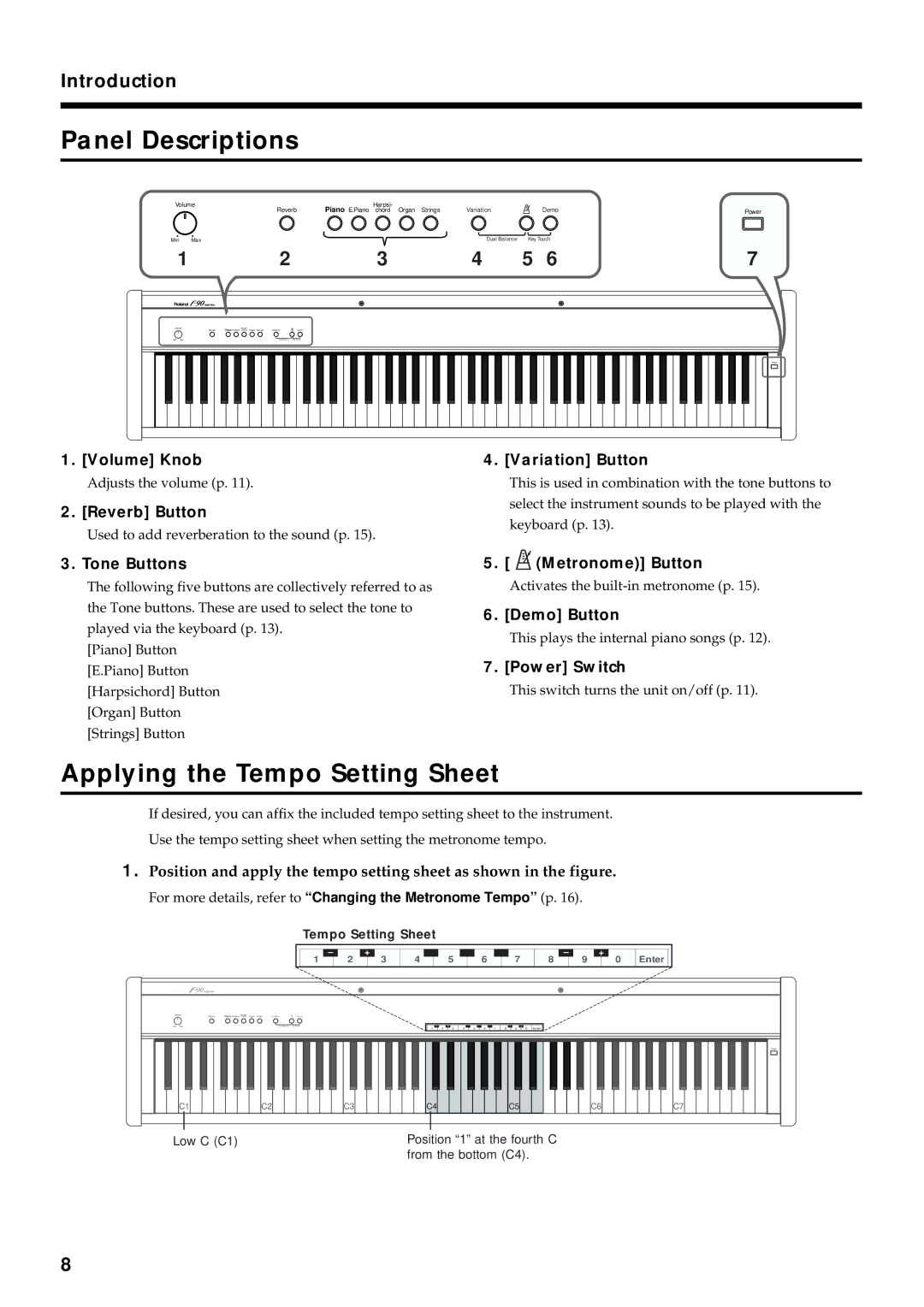
Introduction
Panel Descriptions
Volume |
| Harpsi- |
|
|
| |
|
| Reverb | Piano E.Piano chord Organ Strings | Variation | Demo | Power |
Min | Max |
|
| Dual Balance | Key Touch |
|
1 | 2 | 3 | 4 | 5 6 | 7 | |
Volume | Harpsi- |
|
|
|
| |
| Reverb | Piano E.Piano chord Organ Strings Variation | Demo |
|
|
|
Min | Max | Dual Balance Key Touch |
|
|
| |
Power |
1.[Volume] Knob
Adjusts the volume (p. 11).
2.[Reverb] Button
Used to add reverberation to the sound (p. 15).
4. [Variation] Button
This is used in combination with the tone buttons to select the instrument sounds to be played with the keyboard (p. 13).
3. Tone Buttons
The following five buttons are collectively referred to as the Tone buttons. These are used to select the tone to played via the keyboard (p. 13).
[Piano] Button
[E.Piano] Button
[Harpsichord] Button
[Organ] Button
[Strings] Button
5.[![]() (Metronome)] Button
(Metronome)] Button
Activates the
6.[Demo] Button
This plays the internal piano songs (p. 12).
7. [Power] Switch
This switch turns the unit on/off (p. 11).
Applying the Tempo Setting Sheet
If desired, you can affix the included tempo setting sheet to the instrument.
Use the tempo setting sheet when setting the metronome tempo.
1.Position and apply the tempo setting sheet as shown in the figure.
For more details, refer to “Changing the Metronome Tempo” (p. 16).
Tempo Setting Sheet
| 1 | – | 2 | + | 3 | 4 |
| 5 |
|
| 6 |
|
| 7 | 8 | – | 9 | + | 0 | Enter | |||
|
|
|
|
|
|
|
|
|
|
|
|
| |||||||||||
Volume | Harpsi- | Variation | Demo |
Reverb | Piano E.Piano chord Organ Strings |
Min Max |
| Dual Balance Key Touch | – | 2 | + | 4 | 5 | 6 | 7 | 8 | – | + | Enter |
|
|
|
| 1 | 3 | 9 | 0 |
| |||||||
C1 | C2 | C3 | C4 |
|
|
|
|
|
|
| C5 |
| C6 | C7 |
Low C (C1) | Position “1” at the fourth C |
from the bottom (C4).
Power
8
